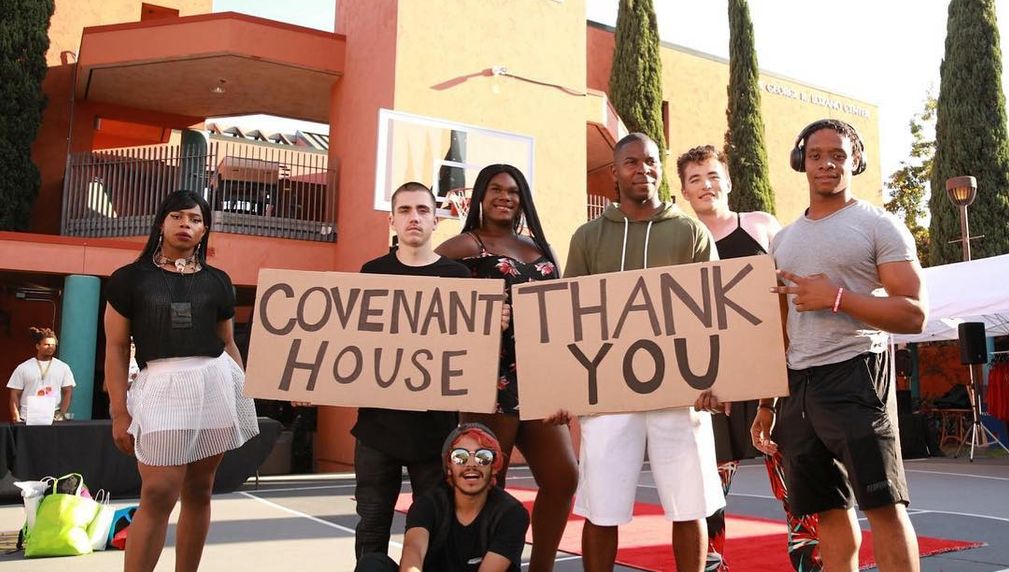The Precise Barber College
The Precise Barber College will provide pathways to careers for homeless youth - not just jobs - and combine the best of the for-profit and non-profit worlds for a socially conscious enterprise.

Are any other organizations collaborating on this proposal?
We will be collaborating with Mr. Gabe Torres, owner/operator of Precise Barbershop in Long Beach.
Please describe your project proposal.
So many of the jobs available to homeless youth are low-paying jobs, and we think they deserve more than that; they deserve the opportunity to have a career. We will use these resources to open a barber college attended by traditional students and homeless youth where they can become certified barbers. The college will encourage an entrepreneurial spirit rather than a charitable one, and its students will quickly understand the ways in which community and service work together in L.A.
Which of the LIVE metrics will your proposal impact?
Self-sufficiency
Resilient communities
Homelessness
In what areas of Los Angeles will you be directly working?
County of Los Angeles
Describe in greater detail how your proposal will make LA the best place to LIVE?
In order for homeless young people to truly be independent, they are going to need careers, not just jobs. We will take the best of the for-profit world – the aggressive pursuit of customers, an emphasis on efficiency, and the flexibility to meet the needs of the community– and combine it with the best of the non-profit world – an understanding of the ways people navigate dark times, an unconditional approach to engagement, and a love of finding resources and opportunities where there appear to be none.
This will help to make L.A. the best place to live because it will seize upon the fact that this city is ripe with resources, viewpoints, opportunities, and purposeful struggle. This social enterprise is a business that will ensure that the capacity for earning power is equal between homeless and non-homeless alike, equipping all with in-depth trade knowledge and small business acumen taught by an expert in the field, and provide a new understanding of just how close we all are, despite the challenges we’ve faced. This cooperative model creates a higher level of accountability and opportunity for community engagement; its income will not only fund the efforts of the college, but will underwrite the comprehensive services that we provide to Los Angeles’ homeless and trafficked youth.
We are firm in our belief that non-profits and for-profits have a lot to gain from one another. The charitable sector could be better at being unapologetic about economic progress and businesses could be better at understanding the real needs of the communities they call home. This project will address the issue of rent burden and earning capacity in L.A. Those armed with a trade that is relevant in a city this that employs hairstylists for myriad entertainment productions as well as the thousands of opportunities for barber positions. What’s more, we will create a body of graduates who will also be schooled in the art of starting and managing their own small businesses, a skill that translates anywhere. Finally, with the emphasis on service, we will generate a population of young, eager men and women with an eye for justice.
Students enrolled in the barber college will have the option of joining our street outreach team and offer free haircuts to youth who are still on the streets. This takes the charitable model of service in the community and turns it on its head – we’re accustomed to the ‘givers’ in society being those who are blessed with resources but we know from experience that our youth who have the least are eager to give, and we couldn’t be more excited to help nourish a whole new population of givers who are creating positive change in L.A.
We are eager to witness the effect that hundreds of service-oriented graduates with earning power and a unique perspective on social engagement will have on our social and fiscal economies. We are building a replicable model that serves people, inspires service, and facilitates connection between Angelenos.
Please explain how you will define and measure success for your project.
We will measure success by the number of students who graduate the program. Considering some of the barriers that our youth have faced and continue to face as they receive CHC supportive services and shelter while attending the college, we would be pleased with a scholarship student graduation rate of 80%.
We will measure success by the number of students who gain meaningful employment as a barber or hairstylist after graduation. With a license in hand, each graduate will be qualified to work as an entry-level barber anywhere in the country and earn a respectable wage doing so.
Another measure of success will be our ability to draw customers for haircuts at the college. Establishing a reputable brand will enable us to engage the community and provide value in the neighborhood. Low and no-cost haircuts to targeted populations (homeless, elderly, school-aged youth) will be served through appointments and walk-ins. The more customers come in, the more practical experience students receive and resources are added for sustainability of the project.
We will measure success by our ability to ensure a sustainable social enterprise that increases the capacity of Angelenos to earn, start their own businesses, and serve the greater good.
Finally, we will measure success by our ability to inspire our graduates to become involved with their community. We want to show them the power of social profit, and we fully expect to see a rise in local volunteerism and collaboration.
How can the LA2050 community and other stakeholders help your proposal succeed?
Money
Volunteers
Advisors/board members
Staff
Publicity/awareness
Infrastructure (building/space/vehicles
Education/training
Technical infrastructure (computers
Network/relationship support